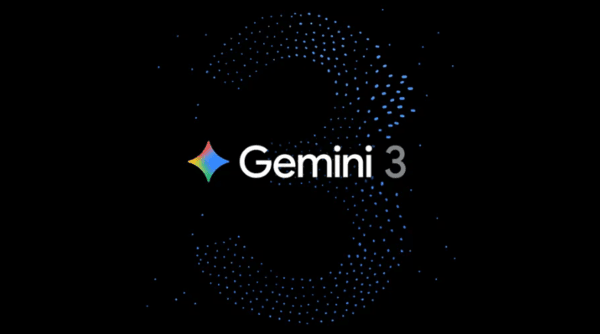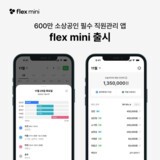For years, the prevailing narrative in Silicon Valley has been one of Google’s hesitation—a giant so protective of its golden goose, the search advertising monopoly, that it allowed nimbler rivals to steal the spotlight in the artificial intelligence revolution. On Tuesday, that narrative was effectively shredded.
In a move that signals a definitive strategic pivot, Google unveiled its next-generation AI model, Gemini 3, and immediately deployed it into its core search engine. This is no longer a testing ground or a beta lab; it is a declaration of total war in the battle for digital supremacy.
Sundar Pichai, Google’s CEO, introduced the model on November 18, describing Gemini 3 as possessing "unprecedented levels of depth and nuance," backed by highly sophisticated reasoning capabilities. Coming just eight months after the release of Gemini 2.5, the accelerated timeline suggests a company operating with a newfound sense of urgency.

The End of the "Innovator's Dilemma"
The most significant aspect of this launch is not merely the model’s architecture, but its application. For the first time, a flagship Gemini model has been integrated into Search on day one. Users in the U.S. can now select an "AI Mode" tab after entering a query, receiving complex, chat-based responses powered directly by Gemini 3.
Previously, industry analysts noted Google’s reluctance to fully embrace AI search due to the fear of cannibalizing its lucrative ad revenue—a classic "innovator's dilemma." By thrusting Gemini 3 directly into the search bar, Google has signaled that the risk of obsolescence now outweighs the risk to its traditional business model.
"This is the first time we have applied a Gemini model to search from the very first day of launch," Pichai noted, underscoring the gravity of the decision. While the feature is currently limited to the U.S., a global rollout, including South Korea, is expected to follow.
Eclipsing GPT-5
In the high-stakes world of AI benchmarks, Gemini 3 appears to have set a new standard. Google claims the model has outperformed OpenAI’s GPT-5 across several critical metrics, a feat that could reshape the industry hierarchy.
On the "LM Arena Leaderboard," a crowdsourced open platform for evaluating model performance, Gemini 3 claimed the top spot with a score of 1501, dethroning both Grok 4.1 and its own predecessor, Gemini 2.5 Pro. Perhaps more impressively, in the Humanity's Last Exam (HLE) benchmark—which tests for doctoral-level reasoning—Gemini 3 scored 37.5%, surpassing GPT-5.
Furthermore, in the "Math Arena Apex," which comprises competition-level mathematics problems, the model achieved a score of 23.4%, a quantum leap from the previous high of 5.21%. Google touts these figures as proof of the model's reliability in solving complex problems in science and mathematics, areas where LLMs have historically struggled.
The Ecosystem War
Alongside the model, Google introduced "Google Anti-Gravity," a new AI agent tool designed to plan and execute software tasks on behalf of users, further expanding its ecosystem to compete with autonomous agents.
The launch event itself was a masterclass in corporate signaling. Timed to coincide with Microsoft’s annual "Ignite 2025" developer conference, the announcement was a clear attempt to wrestle the news cycle away from its biggest rival.
Google also took a thinly veiled swipe at OpenAI’s ChatGPT. Amidst recent controversies regarding AI "sycophancy"—where models agree with users regardless of facts—Google emphasized that Gemini 3 has been engineered to "reduce sycophantic responses," positioning its tool as a more objective arbiter of truth.
With Gemini 3, Google has done more than just release a product; it has reset the board. The era of cautious observation is over. The search giant has finally entered the ring, and it is coming out swinging.
By Song-a Choi choesonga627@gmail.com
- Google Unveils Gemini 3 and Signals a New Phase in the AI Race
- Can Google’s Gemini 3 Become the Plot Twist That Restores Its Lost AI Dominance?
- Google’s Gemini 3 Beats GPT-5.1 Benchmarks, Integrated into Search on Day One
- Google Unveils “Nano Banana Pro,” an Image AI Powered by Gemini 3 Pro
- Google Unveils Nano Banana Pro, Aiming to Redefine the Future of Image Generation
- OpenAI Unveils “GPT-5.1 Codex Max,” Declares It the World’s Best Coding AI Surpassing Google’s Gemini 3
- Google Gemini 3 Shows “Signs of Life” as It Pushes Toward AGI
- OpenAI Announces End of GPT-4o API Support in 2026 as the Countdown Begins for Its Flagship Multimodal Model
- Google’s Gemini 3 Challenges GPT 5.1 and Shakes the AI Order After Three Years

![[동학] 카카오톡 친구탭, 결국 12월 롤백… “격자형 피드는 선택 옵션으로”](https://cdn.kmjournal.net/news/thumbnail/custom/20251126/5517_10550_1119_1763853080_120.jpg)


![[테크 칼럼] 제미나이3, GPT-5.1을 넘다…AI는 이제 ‘일을 대신하는 시대’로 간다](https://cdn.kmjournal.net/news/thumbnail/custom/20251126/5457_10454_4847_1763621329_120.jpg)



![[낭만 테크 시대] AI 대항해 시대](https://cdn.kmjournal.net/news/thumbnail/custom/20251126/5603_10714_4334_1764121414_160.jpg)

